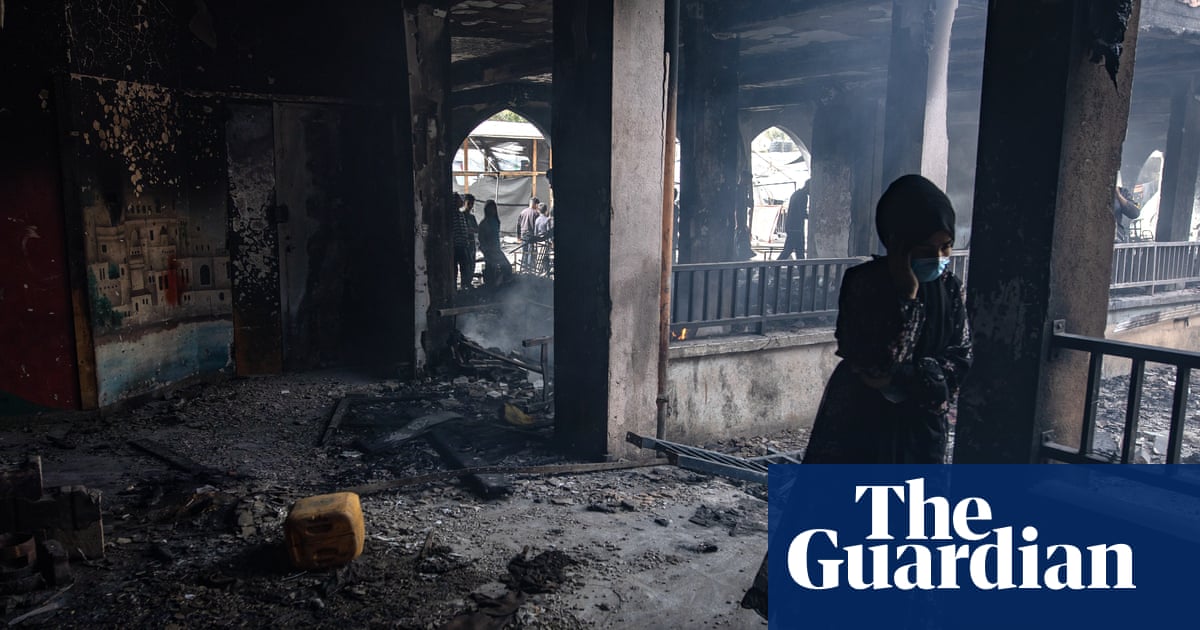Before the real horrors of 20th-century fascism arrived, the long speeches were a sign that something was badly wrong: thousands of ordinary people at rallies, who don’t simply walk away when a man with obvious personality problems stands there spitting specious slogans, shows you when a country is in extremis. Totalitarianism’s propensity for being tedious as well as grotesque is captured rather too well by the director Joe Wright’s lavish, stagey Mussolini: Son of the Century, an eight-part dramatisation of Antonio Scurati’s prize-winning book. It’s quite a spectacle, but it doesn’t half go on.
Luca Marinelli is magnificently disgusting as Benito Mussolini, who founds the Italian Fasces of Combat – a gang of thugs bent on beating up socialists and channelling the fury of neglected first world war veterans – in 1919. Six years later, which in this drama is the best part of six episodes, he has established himself as Italy’s fascist dictator, in a way that will give his European neighbours some pointers on the obstacles to power that must be overcome.
In episode one, Mussolini lists most of those obstacles when he outlines what fascism stands against: the church, the monarchy, the Italian state as it was then and the concept of elections are all, he says, brakes on the strong government his country needs.
But his biggest pain comes from socialists, who refuse to go away no matter how many times Mussolini’s goons cosh them in restaurants or set fire to their offices. Marinelli skilfully portrays a man who is in essence a ridiculous loser, dogged by self‑doubt and only ever one bad piece of oratory away from losing the faith of his followers, but who slowly grows in stature as, through sheer persistence and the fecklessness of his opponents, he endures.
It is a long grind and here, unfortunately, it feels like one. If Mussolini is not giving a speech from the stage, he is doling one out one-to-one to an acolyte or adversary; if he can’t do that, he picks on us instead and orates directly to camera. Political schemers are well suited to breaking the fourth wall, and Mussolini here gives us some good sly asides, but Wright takes the idea of moving beyond regular drama an awful lot further.

This Mussolini introduces himself via a long monologue, where he moves through the people around him talking only to us. The backstreets of Milan, with their urchins gathered on corners and their high wooden scaffolds, have the look of a stage set, and at the start of episode two we go full musical, with a sort of techno-rap dance interlude. There are a lot of political ideas and opinions to chew through; the obvious answer would be to omit some, but Wright glories in them instead, giving us not just a primer on the rise of Italian fascism, but also a comprehensive compendium of things Joe Wright thinks look cool. Ballot slips spin in a cage as Mussolini spins a grenade on his desk; the mouths of his detractors appear through holes in a black screen; characters are filmed from above, from the side, in disorienting closeup or from bewilderingly far away.
This is a shame, because when Son of the Century plays it straight, it does so very well. Marinelli is the sort of actor other performers long to share a two-hander with and, although they tend to be too lengthy, most of the unadorned dialogue scenes bristle with intrigue. Mussolini sparring with his right-hand man, Cesare Rossi (Francesco Russo), is a delight; we are never totally sure who is controlling whom. There is a similar dynamic with Mussolini’s mistress, muse and mentor, Margherita Sarfatti (Barbara Chichiarelli), a canny socialite who gets off on Il Duce’s lack of sophistication – when they kiss, it’s as if two sentient sink plungers are fighting to the death – but who also has the capacity to humiliate him at her fancy futurist salons. That political authoritarians tend to resent and demean the women in their life comes through strongly in Mussolini’s treatment of his neglected wife and a horribly abused secretary.
Cut it in half and Son of the Century would be a potent portrait of a pathetic monster, brilliantly performed and striking to look at. Like the direction, some of the sets are wildly over the top, but the echoing marble mansions, dingy town halls and slums conjure up the right air of sepia-tinted decline, the conditions in which the worst kind of politics can flourish. If only this series could have stuck to its point.

.png) 2 months ago
21
2 months ago
21













































